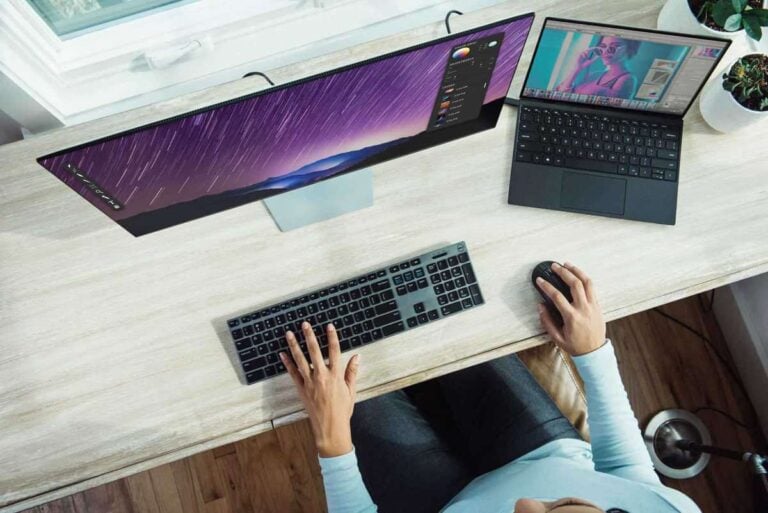To say that the impact of the pandemic on production took the creative industry by surprise in 2020 is to state the obvious. Familiar workflows in content creation were completely disrupted, and agencies, brands and studios alike were forced to think on their feet to come up with contingency plans.
The nature of collaboration has changed drastically. Workflow barriers have clearly fallen. As the new year starts somewhat old, with a second national lockdown put in place, I wonder whether there will be a legacy left after measures are eased, or will these workflow barriers come back up again?
As the CEO of a production studio whose business model over the last thirty years has been built through the energy and creativity that comes from close team interaction, my key focus is to maintain quality and delivery of our content and our communication whilst the team are completely separated.
I’m fortunate enough to count on a team of creative magicians, technical wizards and talented producers that responded to the changes with the same level of energy and lateral thinking. The transition to WFH did not go without its challenges, but we were able to very quickly put all the processes in place to allow us to be off-site and continue to do what we do best – create beautiful, compelling content for our clients.
We had already been working remotely, albeit from our offices, with many OEM’s and their agencies across the globe as a trusted supplier that is authorised to receive their CAD data. Historically, other clients have been particularly wary about remote collaboration, understandably so when it came to the distribution of highly sensitive CAD data of new, top-secret products. Therefore, when we switched to home working, even though we could guarantee content production from our end, I was concerned that there could be a crucial piece missing in the continuity puzzle – the client’s CAD assets.
However, the demand for content didn’t come to a stop, it actually increased. With an unprecedented number of people at home, the appetite and need for engaging visual content were higher than ever. To keep campaign production functioning, companies had to revise their protocols in order to release highly sensitive 3D assets with their agencies and production studios because the physical versions of their products couldn’t be shot or filmed, changing the nature of their collaboration with the industry.
With CAD data now available, marketers and creatives had a new set of tools to expand their campaign ideas and explore new creative possibilities because CGI gave them versatile options they either hadn’t considered before or they didn’t believe they were a viable alternative to traditional methods of production. If before coronavirus CGI was a creative tool that was yet to be explored to its full potential by the industry, it became clear that without CGI, creative production of campaigns would’ve inevitably come to almost a complete stop – that’s the true benefit of remote content production when it is fully digital in nature.
The impact that remote working has had on creative workflows is proving to be significant and signals a paradigm shift in how we collaborate. One of my favourite examples is a complex pitch we presented alongside an agency to an automobile company during the first national lockdown. It involved the use of real-time gaming technology within mobile and online configurators, with the various teams collaborating from London and Singapore. The month-long pitch, prepared entirely remotely – went incredibly smoothly despite the restrictions and challenges of lockdown. This was primarily due to the fact that time wasn’t lost travelling to and from the office, which would have in turn required long night shifts and weekends to complete the project.
When it comes to photoshoots, live remote camera setups have also made it possible for clients to avoid travelling back and forth to locations, as they have now realised it is possible to supervise virtually instead. This allows for processes that are kinder to the planet, by reducing the carbon footprint associated with travel and transportation. When you factor in CGI productions, there is a saving of at least 50% in CO2 emissions. And if, as some argue, the pandemic is Mother Nature’s payback, then perhaps it’s time for us all in the creative industry to put more energy and focus into a more environmentally responsible approach to production.
There’s no doubt that collaboration between agencies, brands and production studios had to change and adapt after established processes became unavailable. Workflow barriers have clearly fallen, but with the ‘new normal’ taking shape, I wonder what the legacy of this period will be, and whether these barriers will come back up again. Certainly, the industry has proven itself versatile and capable of effective remote working. Naturally, companies need office environments from a human perspective and a sense of belonging.
But there are now no obstacles that prevent great content being produced remotely. And, after much reflection, perhaps ‘normal’ is what got us all here in the first place. We will eventually leave the pandemic in the past, but if there’s one thing we must take from it – ‘normal’ wasn’t working. To build a more effective and sustainable future for production our ‘new normal’ cannot simply revert to what it was in the past.

